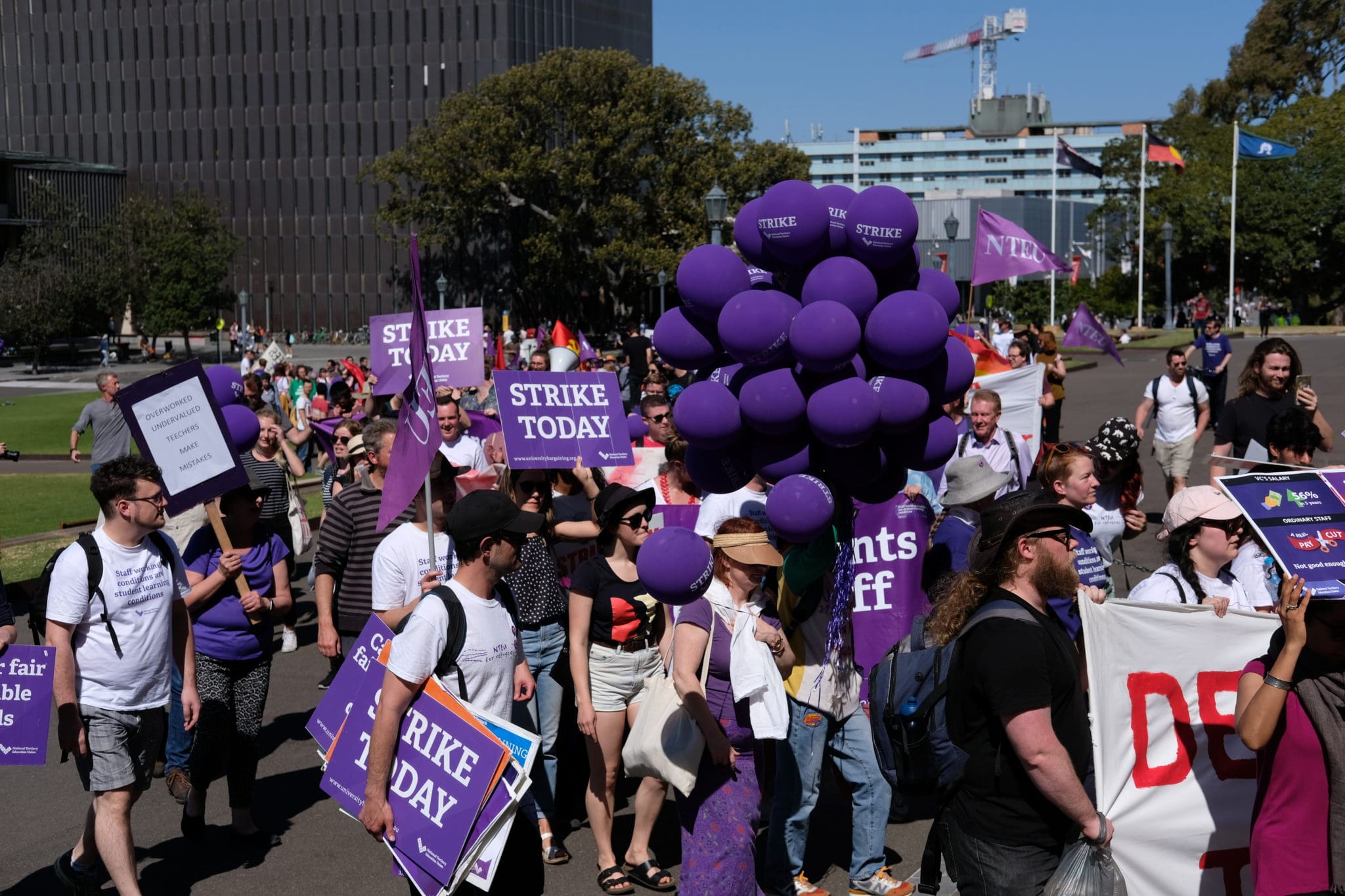In a landmark decision, the Fair Work Commission (FWC) recently allowed Murdoch University in Western Australia to terminate its enterprise agreement.
Without the enterprise agreement in place, staff are only entitled to the award wage, which in some cases provides for pay $30,000 lower than the agreement, although Murdoch has promised to retain the higher rate of pay for six months while it continues to negotiate with the Union.
Enterprise agreements are documents negotiated between a workforce (typically represented by a union) and an employer, setting out employees’ pay and conditions. This one directly affects over 3500 staff at Murdoch, but the decision has far-reaching implications beyond that campus and into the rest of the higher education sector.
The Liberal government has embraced the FWC’s decision with zeal; Education Minister Simon Birmingham told a meeting of higher education officials that the Murdoch result “should be seized, and hopefully can be replicated elsewhere” to offset the impact of reduced government funding to the sector.
With the University of Sydney and the National Tertiary Education Union (NTEU) yet to agree on a compromise over the new enterprise agreement here, the Murdoch decision is of particular interest.
A spokesperson for the University told Honi that the the Murdoch decision would not change its approach to negotiations with the NTEU, but added that “It is difficult to say at this point in time, the University will need to read the decision to fully understand the applicability of it to our circumstances.”
The University also refused to rule out applying to the Fair Work Commission to terminate the EBA at some point in the future, but indicated it has no plans to use the so-called ‘nuclear option’ in the medium term.
“Although we are disappointed that industrial action is being taken by the NTEU, it is important to note the effort that all parties have put into the enterprise bargaining process over many months. We have come a long way using an open, respectful and collegiate approach”, the spokesperson said.
There are also a number of structural differences between Murdoch and USyd that make the nuclear option unlikely for the time being.
The Fair Work Commission’s decision on the Murdoch agreement substantially rested on that institution’s parlous financial situation — it had experienced falling surpluses for the past four years.
Sydney is, comparatively, in a far better position, with lucrative international student enrolments continuing to grow rapidly. Consequently, it is unclear whether the Commission, applying the “public interest” test that it uses to determine such cases, would find it necessary to terminate the enterprise agreement at USyd if it were ever called on to do so.
Furthermore, Sydney has a stronger tradition of union activism than almost any other university across the country. Given this history, one senior NTEU official indicated that any such militant move from management would lead to strikes.
At Murdoch, the enterprise agreement not only provides for pay; it allows the staff to participate in the university’s disciplinary and change-management processes. Similar provisions exist at the University of Sydney.
In an interview with ABC Radio, Michelle Narustrang, Murdoch’s Director of People and Culture, said that the old agreement “is close to 200 pages long, full of administrative burden of duplication. It creates enormous confusion and it’s very difficult to work with.”
NTEU National President Jeannie Rae disagrees, saying that attempts to terminate enterprise agreements “remove important provisions that promote collegiality, consultation and stability, and provide protections including for staff to exercise academic freedom.”
Brendan O’Connor, Labor’s workplace relations spokesperson, says that terminating agreements “Can put employees and unions in the position of having to start again and mount arguments for previously hard-fought improvements to their pay and conditions.
Labor is concerned it has become too easy for employers to undercut wages and conditions through various loopholes in the Fair Work Act (FWA), particularly at a time when we are facing record low wages growth.”
The Fair Work Act was passed under the last Labor government, but the Murdoch decision goes beyond past Commission judgements that have terminated other agreements.
Kathy Reid, who leads the industrial relations practice at the law firm Minter Ellison in Perth, ran Murdoch’s legal team. She told the Australian Financial Review “the Murdoch case went further than previous rulings by concentrating on conditions that allowed for union control of management decisions.
Other termination decisions have often focused on a particular clause that has a direct financial impact, whereas these clauses affect managerial prerogative and restrict things that should just be routine.”
Despite recent decisions, there is increasing concern that the current law may be weighted against workers. A report released by the Senate Standing Committee on Education and Employment last week recommended that the Fair Work Act be amended “to prevent the FWC from terminating an agreement where workers would be worse off as a result of the termination”. Under the Act as it stands, the FWC cannot terminate an agreement unless it is satisfied that termination is not contrary to the public interest. However, ‘public interest’ has not been clearly defined, and in light of this ambiguity, the Committee stated that “termination is being used as an uncompromising bargaining strategy by some employers”, jeopardising some workers’ living standards.
With the Coalition government in Canberra, it is unlikely that any such change will be made before the next federal election. While Sydney academics appear safe, the future academic freedoms and prosperity of staff at smaller universities in the sector hangs in the balance.





